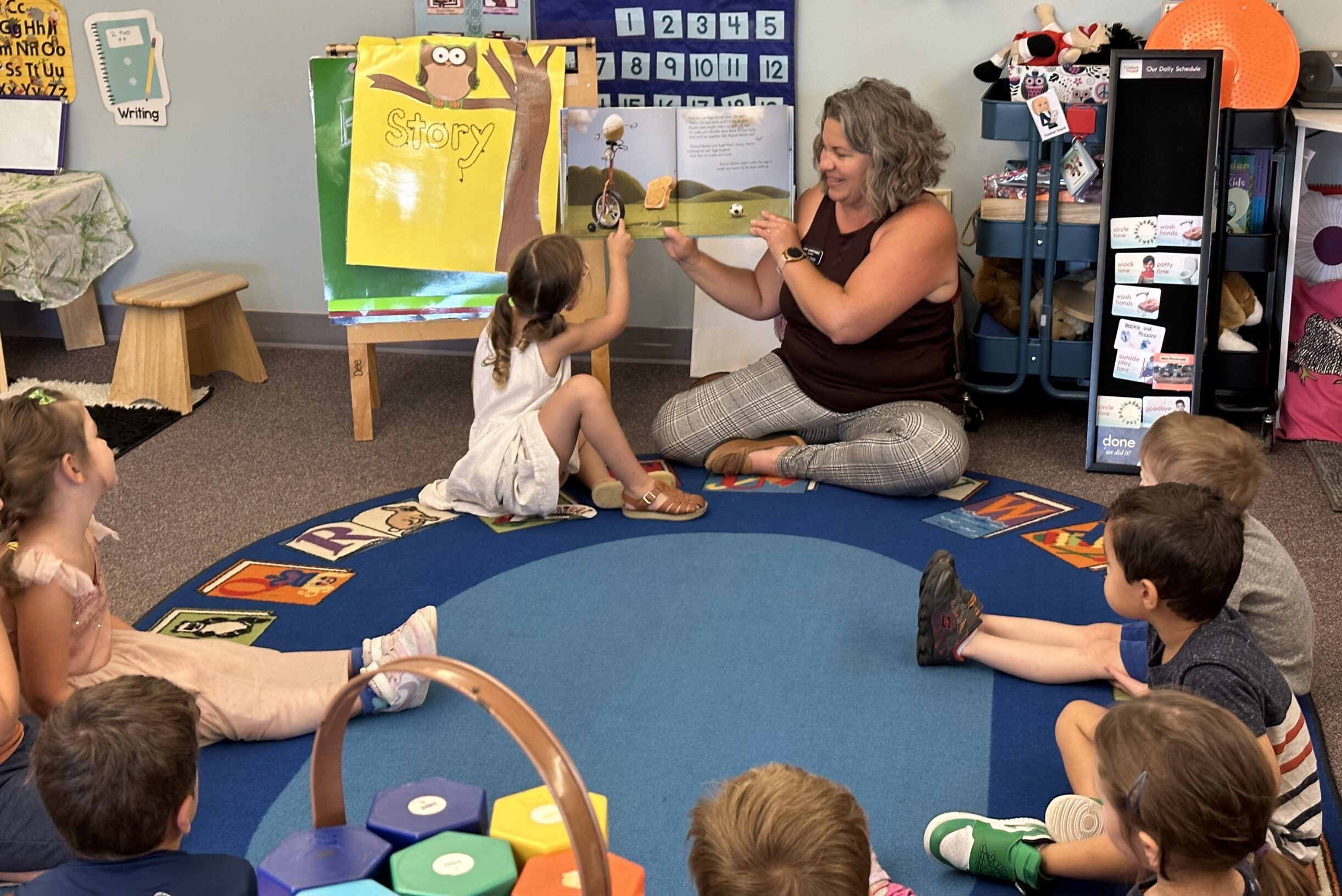
Udpated Friday, Oct. 13 at 9:45 a.m.
State officials say a lawsuit filed by school districts and special education directors over the implementation of its universal preschool program has no merit and should be dismissed, according to a brief filed in state court Thursday.
It says concerns outlined in a lawsuit filed in August by six school districts and two education organizations should be addressed through policy-making, not in the courts.
The 36-page response concerns the state’s new universal preschool program known as UPK. So far, more than 38,000 4-year-olds and thousands more 3-year-olds are participating in universal preschool for between 10 and 30 hours a week. Families send their children to a variety of private providers, school district classrooms and home-based providers in the program.
While both sides applaud the fact that families have access to free preschool, the rollout of the program was rocky, causing massive administrative burdens and extra workload for school districts that were unable to support families in the way they were used to.
In August, the school districts, the organization representing Colorado’s superintendents, and another representing special education directors filed a lawsuit against Gov. Jared Polis and state education leaders. They alleged the state’s complete control over how a family is matched to a childcare provider caused a litany of problems and prevented them from meeting the needs of thousands of families in a timely manner, especially students with disabilities.
In their lawsuit, districts detailed many examples of having to turn away families because they couldn’t verify they were properly placed, long waits on hold for families, or families lost somewhere in the system.
State responds
The state’s argument boils down to this: School districts say that they have powers they actually don’t and the districts have misinterpreted their own obligations to federal law.
“Courts have consistently rejected the claim that school districts must control all publicly funded education for students within their borders,” it states. “The local-control clause does not create a regulation-free zone, somehow outside the legislature’s authority to set policy for the state of Colorado.”
In their lawsuit, school districts asked for access to the state’s online matching system to speed up the process and make sure families with children with disabilities get into a classroom that meets their needs. They argued that Colorado’s constitution doesn’t give the new Department of Early Childhood (CDEC) power to control enrollment and placement decisions in public preschools. Instead, it said local districts control enrollment, staffing, and funding for their preschool programs.
In the state’s motion to dismiss, it said Colorado law doesn’t give local school districts control over enrollment or how students apply to or are matched in UPK. Instead, local school districts get to control curriculum, hire teachers and raise local tax dollars to support their schools.
“None of these interests implies the authority to control instruction for students not enrolled in the district, let alone to control the application procedures for students who may never enroll,” the state’s brief states. “It follows that CDEC’s power to coordinate preschool enrollments across participating providers, both public and private, does not ‘usurp the local board’s decision-making authority or its ability to implement, guide, or manage the educational programs for which it is ultimately responsible.’”
School districts also argued they have a federal responsibility to inform all parents of children with disabilities of their rights to services, but they couldn’t do so for families enrolled in private childcare centers. The state, however, argues that it is in charge of ensuring those families are notified, and that it does not become the districts’ responsibility until a student is actually enrolled in the school district.
School districts worry about not enough funding for UPK
The districts’ lawsuit also alleges that the state inappropriately diverted $38 million meant for special education students into CDEC’s general education pot, violating federal law and leaving districts “grossly lacking in resources.” A district must spend at least as much state and local money for special education as it did the previous year. They alleged they’d be unable to do this because of how UPK changed how state funds flow to districts.
But the state argues that it and the school districts signed an agreement ensuring UPK reimbursements to districts this year won’t dip below last year’s funds. The state also argues the school districts’ lawsuit presented no evidence of actual harm – it only relies on “speculative fear” that their enrollment numbers may fall, and they’ve “not alleged that they had to turn any actual students away.”
In other words, there is no claim they’ve lost money and districts don’t say how the shift in funds has hurt them in violation of federal law, the state argues.
Is UPK’s matching system harming low-income families?
In an equal protection claim, school districts alleged that how the UPK matching system operates is harming low-income students and non-English speaking families. The matching system program is only available in three languages and it takes some technical savvy to know how to work the system. It argued the UPK system harmed districts and families that couldn’t enroll in UPK.
The state responded that districts can’t make a claim using “unidentified third parties” and because the plaintiffs aren’t alleging intentional discrimination, that claim should be dismissed.
What about those 9,100 families that lost the full 30 hours of preschool they thought they were going to get?
School districts say the state broke promises to fund a certain group of families for 30 hours a week of preschool. In the summer, about 9,000 families found out they were instead only getting 15 free hours per week. The state argues that the law requires that if there are more children with qualifying factors than eligible funding, the state must prioritize low-income families with one other qualifying factor (i.e. families experiencing homelessness) for additional hours.
Simply put, the state says there wasn’t enough funding to give all families in the state who wanted to send their kids to preschool the full 30 hours, the brief argues.
One of the plaintiffs, the Colorado Association of School Executives, said in a statement that it is not surprised but is disappointed by the state’s response. It said it continues to be ready to work with the state to make improvements and fix what’s not working because districts are already preparing for the second year of UPK.
“As plaintiffs, we stand by our claims and we will continue to advocate for the students, families and schools who will benefit from a successful universal preschool program in our state.”
Editor's note: This story has been updated to include the response from CASE, a plaintiff in the lawsuit









